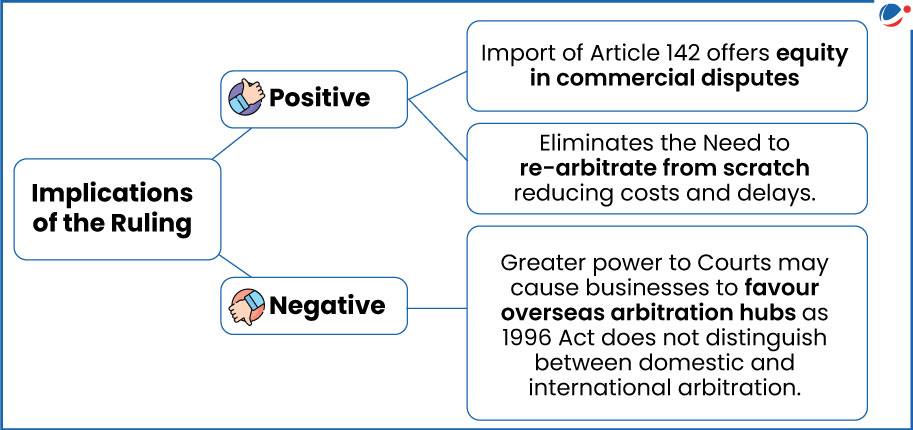SC in the Gayatri Balasamy v. ISG Novasoft Technologies Limited, held that the power to modify awards can be exercised under Section 34 or 37 of the Arbitration and Conciliation Act, 1996 under the following circumstances:
- When the award is severable by separating the invalid portion from the valid portion.
- SC cited the doctrine of omne majus continet in se minus (the greater power includes the lesser), i.e. the power to set aside an arbitral award necessarily includes the power to set it aside in part.
- Correct any clerical, computation or typographical errors.
- Modify post-award interest in some circumstances.
- Under Article 142 (enabling Courts to do complete justice) of the Constitution provided this power should be in consonance with the fundamental principles of the 1996 Act.
Arbitration in India
- Meaning: It is a form of Alternative Dispute Resolution mechanisms (others being conciliation and mediation) involving consensual method of resolving disputes outside of a national judicial system through a private system of adjudication.
- Significance: Less adversarial, Flexible, Quicker, etc.
- Legal Framework: The Arbitration and Conciliation Act, 1996 modelled as per the United Nations Commission on International Trade Law (UNCITRAL) Model Law on International Commercial Arbitration, 1985.
- Section 34(1) of the Act stipulates ‘recourse’ to a court only by an application for setting aside the award.
- Section 37 states instances where an appeal may lie against orders.








